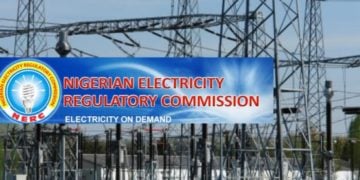With the series of engagement with key stakeholders in the Nigerian oil and gas industry, particularly with the upstream players, in the drafting of post Petroleum Industry Act regulations, the latest being for the Frontier Exploration Fund and the Host Community Development Fund, the Nigerian Upstream Petroleum Regulatory Commission is bent on steering the industry to path of growth and increased value addition.
Gbenga Komolafe, commission chief executive of the Commission, is also proliferating synergy to foster technological advancement to support Nigeria’s energy transition.
The Commission has the statutory responsibility of ensuring compliance with petroleum laws, regulations and guidelines in the oil and gas industry.
The NUPRC, was created in response to the dire need to optimise public governance in the Nigerian petroleum industry and to enshrine separation of roles amongst the policy, regulatory and commercial activities which were hitherto not distinctly carried out by various instruments of the government.
Similarly, there was an apparent need to enhance the competitiveness and attractiveness of the industry to investment and also to bring an end to the lingering oil and gas sector reform embarked upon by the federal government about two decades ago.
Specifically, the role of the Commission encompasses its objectives; technical, commercial and regulatory functions; as well as its powers as stipulated in Chapter 1, Part III of the PIA [Petroleum Industry Act] 2021.
The Commission is primarily responsible for regulating, monitoring, influencing and enabling all activities in the upstream sector of the industry to ensure compliance with applicable technical and commercial rules, laws, regulations, policies, codes, standards and other instruments to ensure that operations are not only carried out in an environmentally friendly manner but also safely and sustainably.
Broadly speaking, the Commission is statutorily designed to be a 21st-century regulator and an investment enabler in the upstream petroleum industry that would conduct its activities in a transparent, accountable, ethical, professional, customer-oriented and investment-friendly manner to ensure optimal value creation to Nigerians and our stakeholders for shared prosperity.
Setting The Structure For Positive Engagement Series
Interestingly, immediately after the assent of the PIA in August 2021, President Muhammadu Buhari, set up a Presidential Steering Committee (SteerCo) to drive and co-ordinate the implementation of the law under the able leadership of the Minister of State for Petroleum Resources as the Chairman with Komolafe, chief executive, NMDPRA [Nigerian Midstream and Downstream Petroleum Regulatory Authority] (Authority), group managing director, NNPC, executive secretary, PTDF [Petroleum Technology Development Fund] and other high-ranking public officials as members. The Steering Committee set up an inter-agency working group with representatives drawn from all of the agencies impacted by the PIA, the two industry trade unions and other relevant MDAs to undertake the day-to-day coordination of the implementation in collaboration with the institutional implementation teams set up by the Commission, NNPC and the Authority.
It is against this backdrop that the Commission is actively collaborating with the SteerCo and other stakeholders like the OPTS [Oil Producers Trade Section], the IPPG [Independent Petroleum Producers Group], etc. to ensure seamless implementation of the law to achieve its intendment in line with the aspiration of the President.
Currently, the Committee, is assiduously progressing the implementation in a way that industry operations are not adversely disrupted while adhering to the timelines enshrined in the law.
The Commission, simultaneously in collaboration with the SteerCo is carrying out major reforms necessary to crystallise the provisions of the law into reality, from governance issues, structural emplacement, designing processes and systems, human resources optimisation and realignment, change management, asset and liability determination, management of legacy matters and management of change, regulation making etc.
Similarly, it suffices to state that lots of planning and analytic work is at finalisation advanced stage across each of the areas mentioned.
In the same light, processes are at an advanced stage to engage the services of globally renowned consulting firms to peer review, advise or benchmark all the various elements of the implementation programmes and processes in our quest to have world-class regulatory institutions and a commercially viable National Petroleum company.
Furthermore, enactment of regulations is also a critical area necessary to accelerate the operationalisation of the law to avoid disruption of industry operations due to the implementation process.
Hence, the regulator has prioritised regulation-making as a major deliverable that would serve as a mitigant in this regard. The Commission in collaboration with the Presidential Steering Committee have developed some key regulations for the upstream petroleum sector, including conversion and renewal (oil prospecting licences and oil mining leases) regulations, petroleum licensing round regulations, upstream petroleum fees and rent regulations, petroleum royalty regulations, domestic gas delivery obligation regulations and petroleum host community (upstream) regulations.
The Act also provides for a stakeholder consultation requirement for the review of input from all stakeholders in the upstream petroleum operations before the finalisation of regulations.
Additionally, is deepening the internal review of other draft regulations which would also be subjected to the stakeholder consultation process in compliance with section 216 of the PIA.
As regards the fiscal and governance framework as provided by the PIA, there is no doubt that it’s a major departure that recognised the need for a balanced fiscal system that would ensure optimal revenue to the government and attractive returns to investors in light of growing competition for capital, while strengthening the regulatory environment to optimal regulatory value proposition to facilitate shared prosperity amongst stakeholders.
Opening Active Path To Stakeholder Synergy
For effective implementation of the Petroleum Industry Act (PIA), the NUPRC, has effectively drafted 7 regulations to guide its dealings with relevant stakeholders in the oil and gas industry.
The draft regulations included Acreage management (Drilling and Production) Regulations; Upstream Petroleum Environmental Regulations; Upstream Petroleum Environmental Remediation Fund Regulations; Upstream Petroleum Safety Regulations; Utilization Regulations; Upstream Petroleum Decommissioning and Abandonment and Regulations and Frontier Exploration Funds Regulations.
At the commencement of the second phase of a consultation meeting with the stakeholders in Abuja, recently the Commission’s Head of Compliance and Enforcement, Dr. Joseph Tolorunse said the participants involved the host communities, OPTS, IPPG, World Bank, Oil and Gas Operators and all other stakeholders in the industry.
He said that the gathering was essentially to harness the inputs of the stakeholders on the matter.
“This process as part of the procedure for making regulations under the PA underscores the effort of the current administration at encouraging collaboration in rulemaking for effective implementation and sustainable compliance by all stakeholders to the Regulations.
“For theory and practice of administrative rule making has poignantly shown that if the regulated entities are part of the process of regulations making, compliance to Regulations will be achieved by more than 90%.
“Therefore, what you are being invited to do in the next few days is to partner with the commission to formulate appropriate regulatory framework for the growth of the petroleum industry and rapid economic and social development of the country.
“Moreover, this forum serves as an avenue to listen to our stakeholders more, understand their views about our regulations and secure their buy- in of the Regulations, which ultimately determines our success of full implementation of the PIA. With this procedure of rulemaking, it is believed that consensus will be built, trust between the regulator and the regulated entities will improve and ultimately, the regulations will be easier to implement and sustained”, he said.
Similarly, the Commission’s chief executive, Engr. Gbenga Komolafe represented at the meeting by the Executive Director, Health, Safety and Environment, Captain John Tola said the meeting was in compliance with section 216(4)(g) of the PIA.
“Our commitment to create an enabling environment for growth and investment in the Upstream Oil and Gas Industry in Nigeria has steered our focus towards working with all stakeholders. This can be seen in our efforts to ensure that regulations and key policies necessitated by the PIA are developed and gazzated timely so that industry operators can align their operations with the PIA provisions as quickly as possible”, he said.
The forum is expected to collate their inputs and take a position at the programme on Wednesday.
Seeking Support Of Indigenous Producers Group
In what is seen as phased engagement process Komolafe, at a strategic meeting solicited the support of the Independent Petroleum Producers Group (IPPG) for the smooth implementation of the Petroleum Industry Act (PIA).
LEADERSHIP, reports that at the forum, he recognized the indigenous exploration and production companies as a critical component of the Government’s energy security plan for the nation.
‘’We will be a fair and just regulator conducting our affairs in a transparent manner and serving as a business enabler”, Komolafe stated while emphasizing the importance of compliance with regulation by industry players. The NUPRC helmsman promised to work closely with all industry stakeholders.
Komolafe said that the industry was at a critical phase with the ongoing reforms and global energy transition drive making it imperative that the NURPC and IPPG should collaborate to ensure the industry is well positioned to seize opportunities and minimize any adverse impact on the industry and ultimately the country.
‘’NUPRC is ready to work with IPPG in addressing challenges impeding your growth and the development of the sector,’’ Komolafe said.
The IPPG delegation led by its Chairman, Mr. Abdulrazaq Isa, in response thanked the Commission Chief Executive for the invitation and congratulated him on the recent appointment. He also pledged the support of IPPG in realising the Commission’s mandate of growing and developing the Nigerian oil and gas industry.
The IPPG Chairman in his presentation focused on the evolving industry landscape, ongoing industry reforms, IOC divestment, and the role indigenous exploration and production companies can play in this new era in guaranteeing the nation’s energy security.
“Nigeria cannot afford to be left behind in view of the global energy transition agenda. Natural Gas should be considered as a transition fuel with deliberate policies formulated to attract investment into the sector,’’ Isa said.
While noting the PIA enactment will set a solid growth foundation for the entire industry, the IPPG Chairman said it was imperative that effective regulations are formulated to derive the full benefits of the Act.
According to Isa, ‘’industry-wide consultation in the enactment of regulations is required to promote inclusivity and ensure robustness of regulations’’.
The IPPG Chairman also identified key challenges being faced by the industry in the areas of security, funding, high operating costs, lengthy contract cycle, amongst others.
’’We look forward to collaborating with the NUPRC in finding long lasting and sustainable solutions to these challenges,’’ Isa concluded.
Strategizing With Oil Majors
The NUPRC as part of its engagement process, has connected met with the Oil Producers Trade Section (OPTS), the groups that form the core of companies drilling oil in Nigeria.
One of the outcomes of the engagement was to produce a working plan to halt the massive oil theft in the country which has been described as a national disaster.
Komolafe, told the group that the meeting was to share information as to the actual number of crude oil losses confronted by the entities.
Although during a presentation at the event, the commission stressed that Nigeria may have lost as much as $3.27 billion to vandalism between January 2021 and February 2022, a period of 13 months, it noted that the industry figures needed to be reconciled.
In addition, it put the average monthly value lost during the period at $233.99 million, while on the average, it estimated that the country may have lost as much as $7.72 million on a daily basis.
However, Komolafe stressed that the issue of oil theft had become very critical to have divergent data on the menace, announcing that the reason for the meeting was to get all stakeholders’ view so as to confront the challenge using a common front.
“This is a one-agenda meeting and it centres on the issue of crude oil theft. The issue of oil theft has become a very worrisome one to the nation, to the government and I believe to you as investors in OPTS and IPPG, even as it is to us as your regulators.
“So, this is for us to sit at a roundtable and hear each other and share information. More worrisome, is that in recent times, we have had conflicting positions as to what is really happening in the upstream. As a responsible regulator, there’s need for us to agree on the way forward and to hear your perspective.
“We need to have accurate figures. As a government we cannot continue to use abstract or inaccurate figures in a matter as important as crude oil theft. We have set up a crack team to be able to have the information we need,” he stated.
Komolafe maintained that the challenge remained a disincentive to investment at a time Nigeria was in dire need of foreign exchange, assuring that the government was determined to make the industry more attractive for investors.
While promising positive change, Komolafe stated that no aspect of the value chain would be unattended to, saying President Muhammadu Buhari, had directed that Nigeria must be rid of the menace.
Komolafe said the government was determined to end the menace so that the country can benefit from the rising price of oil and also be able to protect the environment from oil spills.
“The concern of the government is to increase our national oil production. Basically, we are an oil economy and when the upstream is sick, it affects the wellbeing and the health of the country.
“The situation that is happening in the upstream is getting to the level of threat to the existence and wellbeing of Nigeria. As a responsible regulator, we are very concerned about it. We have been doing a lot and we are not relenting.
“We will do everything possible to increase oil production in a manner that will make the nation benefit from the upward swing in the international price of crude oil,” he noted.
Similarly, during the presentation, the commission disclosed that most of the crude oil losses came from Bonny Terminal Network, Forcados Terminal as well as Brass Terminal.
It listed factors aiding the criminal activities as: economic challenges, inadequate security, poor surveillance, poor community engagements, exposed facilities and stakeholder compromises.
The commission stated that due to the high level of theft, the country had been unable to meet its Organisation of Petroleum Exporting Countries (OPEC) production quota.
Also speaking, Senior Technical Adviser to the CEO, Abel NSA, said that the impacts of the phenomenon include loss of value-a situation where government revenue is adversely affected, increased costs-due to frequent repairs of damaged facilities and environmental degradation due to spillages by the activities of saboteurs.
On actions taken to mitigate the challenge, he said work teams had been set up to deliberate on workable solutions, identify various responsible parties and propose improvement areas.
In addition, he noted that a public, private approach was being adopted while the implementation of the provisions of the Petroleum Industry Act (PIA) was ongoing.
He noted that on the community side, the outlook was to engage, carry out awareness campaigns as well as ensure prompt payment of community contractors, while the installation of check meters, engagement of competent entities for pipelines surveillance and pipelines integrity assessment were being envisaged.
Also speaking, Chairman/Managing Director of ExxonMobil, Richard Laing who represented OPTS, maintained that the issue had grown beyond mere theft to what he described as, “organised criminality” involving sophisticated operations.
“As an industry, I know how hard my colleagues work to produce products that we need and to suffer the level of theft that we have is disheartening. But more importantly it is a threat to investments, a threat to the health of the industry and wealth of the nation
“It is important that the stakeholders integrate their activities and their thoughts. As OPTS we have met with a number of stakeholders over the last several months and we want to make sure that whatever we do is joined up and effective.
“The language is very important and I think we use theft rather quickly. I don’t think this is theft, this is organised criminal activity.
“The level of sophistication in terms of tapping into the pipelines, the distributions, efforts required to move hundreds of thousands of barrels a day isn’t some guy coming along and tapping into a pipeline and taking container crude oil. It is organised criminality,” he insisted.
Also commenting, the Independent Petroleum Producers Group (IPPG) represented by the Managing Director of Waltersmith Petroman, Chikezie Nwosu, disclosed that about 82 per cent of its members’ production was stolen in the month of February 2022.
Stressing that independent producers were facing an existential threat, Nwosu explained that the oil theft challenge had jumped from about 4 per cent in the past, to a high of 91 per cent in December, 2021.
“The TNP (Trans Niger Pipeline) is the major issue. We have seen crude theft grow from single digit percentages to reports of 91 per cent in December for some of the operators who produce into the TNP, 75 per cent in January and the February report we got has an average of 82 per cent,” he added.
Gazetting Upstream Petroleum Decommissioning
The NUPRC in apparent show of dedication is at the final stage of gazetting and setting up fund under the Upstream Petroleum Decommissioning and Abandonment Regulations.
The NUPRC said the regulation would be gazetted in October, and is working towards meeting the timelines provided by the Petroleum Industry Act (PIA) 2022.
Dr Joseph Tolorunse, Commission’s Head of Compliance and Enforcement made the disclosure at the closing of its stakeholders’ engagement on regulations development as mandated by Section 216 of the PIA, in Abuja.
“The fund under the Upstream Petroleum Decommissioning and Abandonment Regulations is to be set up within 18 months of the effective date of the PIA which will be expired by February 2023.
“In the next one month the regulation will be gazetted, we are almost at the final stage of the regulation,” Tolorunse said.
Only last week, the NUPRC, began the second phase of the Frontier Exploration Fund (FEF) as well as the regulations on decommissioning and abandonment of assets by oil and gas operators.
Whereas there was no concrete framework on both industry issues before now, the Petroleum Industry Act (PIA) now provides for strong rules on how oil companies would henceforth decommission or abandon their facilities without causing harm to the environment.
It also provides for a Frontier Exploration Fund (FEF) which would be deployed annually to fund search for oil and gas in the frontier basins of Nigeria under the PIA.
It will be mainly extracted from 30 per cent of the Nigerian National Petroleum Company (NNPCL) profit from oil and gas, while 3 per cent of operating expenditure approved under the Act, would be spent on the Host Communities Trust Fund (HCTF).
Speaking during the new round of consultations in Abuja , the Commission’s Chief Executive, Gbenga Komolafe, revealed that progress had also been made on the phase one of the exercise , leading to the gazetting of the host communities’ fund.
The fund is expected to provide the much-needed relief for oil producing areas of the Niger Delta who have been subjected to years of neglect by the oil companies and the government.
Other draft regulations to be considered include: Acreage Management (Drilling and Production); Regulations and Upstream Petroleum Environmental Regulations as well as the Upstream Petroleum Environmental Remediation Fund Regulations.
Also up for discussion during the three-day event are the Upstream Petroleum Safety Regulations and the Unitisation Regulations.
Represented by the Executive Commissioner, Health, Safety, Environment and Community, NUPRC, Capt. John Tonlagha, Komolafe stated that the consultation was in furtherance of the initial rules reviewed in April.
The NUPRC chief executive recalled that six draft regulations were presented for discussion in April during the first phase of its consultations with stakeholders.
According to Komolafe, the stakeholders’ inputs from the engagement were incorporated where necessary, in the draft regulations which were forwarded to the Attorney General of the Federation and Minister of Justice for vetting, legislative standardisation and approval.
While one of the regulations, the host communities’ trust fund regulation had been gazetted, Komolafe stated that the remaining five had been finalised and ready to be gazetted.
“Our commitment to create an enabling environment for growth and investments in the upstream oil and gas industry in Nigeria has steered our focus towards working with all stakeholders.
“This can be seen in our efforts to ensure that regulations and key policies necessitated by the PIA are developed and gazetted timely so that the industry operators can align their operations with the PIA provisions as quickly as possible,” he stated.
Komolafe reiterated that the process of formulating the regulations had been rigorous being products of critical evaluation and hard work by the commission’s regulatory development team and the presidential implementation committee on PIA.
“Please permit me to reiterate that the process of formulating the above regulations has been a rigorous and strenuous exercise. They are products of critical thinking and evaluation, and hard work by the commission’s regulation development team and the Presidential Implementation Committee on PIA.
“ Despite this however, the process is not complete until the stakeholders’ critical inputs are obtained, discussed, and incorporated, where necessary, in the regulations.
“To this end, I am of the firm view that with the level of turnout today, we will have healthy, robust, and intellectual discussion on the regulations during the syndicate sessions to come out with robust regulations with best international best standard.
“In conclusion, this phase in our regulations development is by no means a final or exhaustive one in our drive to support the upstream industry operators. The commission will continue to embark on programmes and policies that will create enabling environment for growth and more investments in the Nigerian upstream oil and gas sector,” he assured.
Speaking earlier, the Commission’s Head of Compliance and Enforcement, Dr Joseph Tolorunse,said that the forum served as an avenue to listen to stakeholders’ views on the regulations and secure their buy-in which would determine PIA’s implementation.
He maintained that it had been confirmed empirically that if stakeholders were part of the regulations making process, compliance would be achieved easily.
“With this procedure of rulemaking, it is believed that consensus will be built, trust between the regulator and the regulated entities will improve and ultimately the regulations will be easier to implement and sustained,” he stated.





